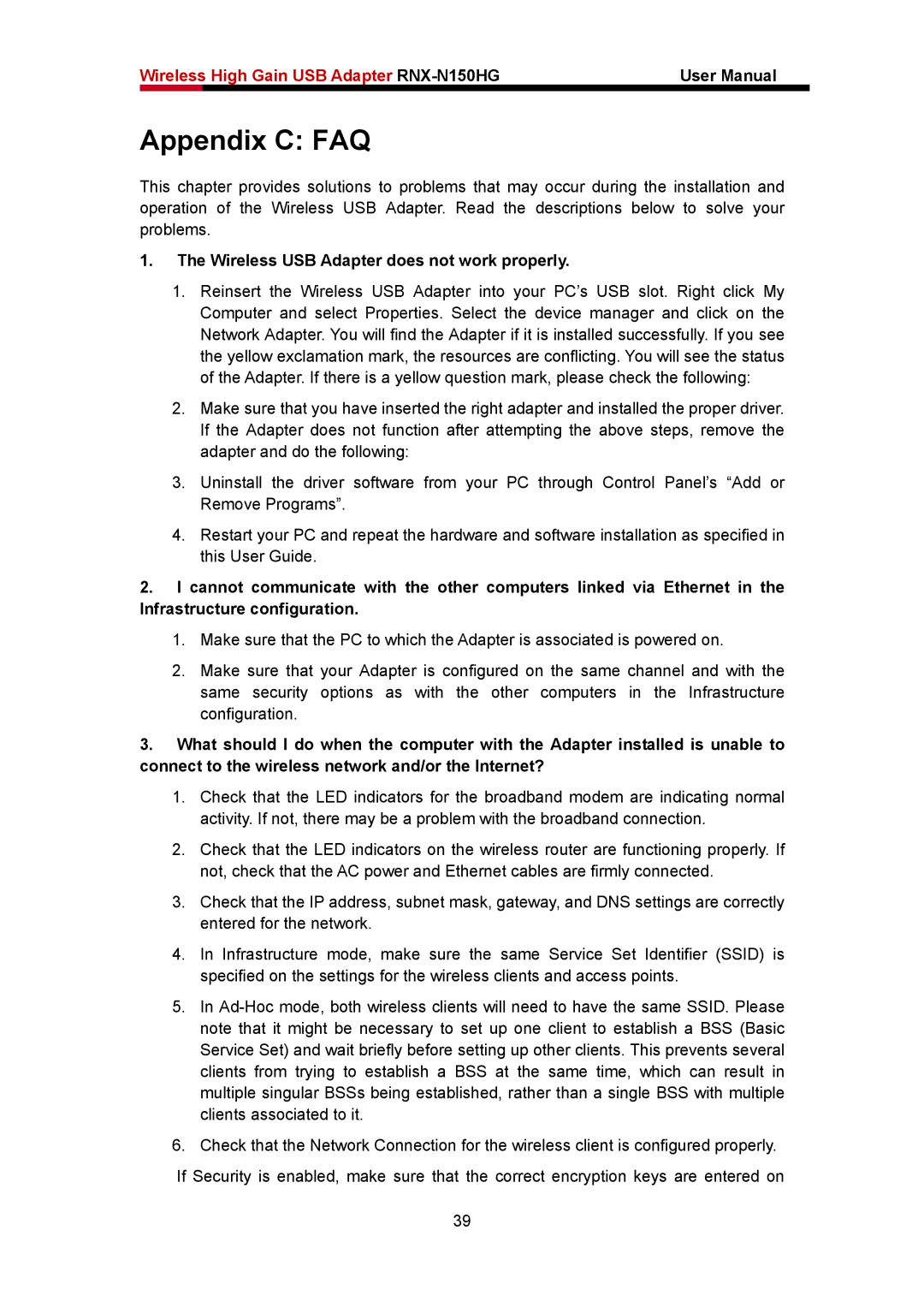Wireless High Gain USB Adapter | User Manual | |
|
|
|
Appendix C: FAQ
This chapter provides solutions to problems that may occur during the installation and operation of the Wireless USB Adapter. Read the descriptions below to solve your problems.
1.The Wireless USB Adapter does not work properly.
1.Reinsert the Wireless USB Adapter into your PC’s USB slot. Right click My Computer and select Properties. Select the device manager and click on the Network Adapter. You will find the Adapter if it is installed successfully. If you see the yellow exclamation mark, the resources are conflicting. You will see the status of the Adapter. If there is a yellow question mark, please check the following:
2.Make sure that you have inserted the right adapter and installed the proper driver. If the Adapter does not function after attempting the above steps, remove the adapter and do the following:
3.Uninstall the driver software from your PC through Control Panel’s “Add or Remove Programs”.
4.Restart your PC and repeat the hardware and software installation as specified in this User Guide.
2.I cannot communicate with the other computers linked via Ethernet in the Infrastructure configuration.
1.Make sure that the PC to which the Adapter is associated is powered on.
2.Make sure that your Adapter is configured on the same channel and with the same security options as with the other computers in the Infrastructure configuration.
3.What should I do when the computer with the Adapter installed is unable to connect to the wireless network and/or the Internet?
1.Check that the LED indicators for the broadband modem are indicating normal activity. If not, there may be a problem with the broadband connection.
2.Check that the LED indicators on the wireless router are functioning properly. If not, check that the AC power and Ethernet cables are firmly connected.
3.Check that the IP address, subnet mask, gateway, and DNS settings are correctly entered for the network.
4.In Infrastructure mode, make sure the same Service Set Identifier (SSID) is specified on the settings for the wireless clients and access points.
5.In
6.Check that the Network Connection for the wireless client is configured properly. If Security is enabled, make sure that the correct encryption keys are entered on
39
